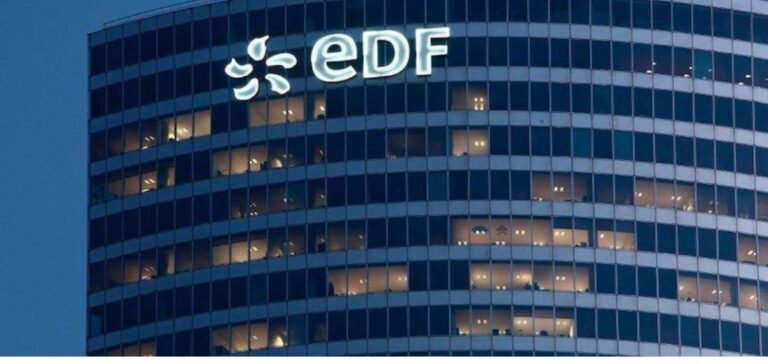At the end of July, EDF’s former employee shareholders lodged a new appeal with the Conseil d’Etat to contest the purchase price of their shares, which they claim is undervalued at a time when the renationalized company is in a better financial position, the applicants said on Wednesday.
Battle for the Right Price: Full Renationalization of EDF
The 100% renationalization of EDF took place on June 8, with the purchase of the last remaining 2% of the company’s shares from minority shareholders, one year after the deal was announced. This share buyback price of 12 euros has always been deemed insufficient by EDF’s small shareholders, who demanded at least 15 euros and took the matter to court. But after months of legal wrangling, they were rejected by the Paris Court of Appeal last May. With this new claim for compensation, the Fonds commun de placement en actions (FCPE), which represents some 100,000 EDF employees or retirees who have invested their money in the group, hopes to obtain an additional price and a new appraisal of the share’s value.
For the shareholders, the renationalization process “provides for an inadequate price (…) that does not reflect the true value of the company and its shares”, according to the petition, which AFP has seen.
Their leader Martine Faure believes that the value of the shares should be revalued on the date of transfer of ownership, i.e. June 8. At that time, EDF’s financial situation was much better than it would have been in October 2022, when a valuation set the share price at 12 euros. Her assessment was based on “bad assumptions made at the worst possible time” in 2022, a black year for EDF, which had ended with a net loss of 17.9 billion euros, Faure summarized. In the midst of soaring energy prices, the group had to sell more low-cost nuclear power to its alternative supplier competitors to mitigate the bill for the French, while facing historically low nuclear output due to corrosion affecting crucial piping in its reactors.
Since then, the Group has made a “spectacular” recovery, as Ms. Faure points out, noting that on July 27, EDF announced a profit of 5.8 billion euros for the first half of 2023.
Between this award and these financial performances, “there’s a contrast that benefits the state”, she stressed.
With this transaction, the French state, which already owned 84% of the company, is no longer a shareholder. He would like to take full control of the company to speed up the nuclear revival.






















